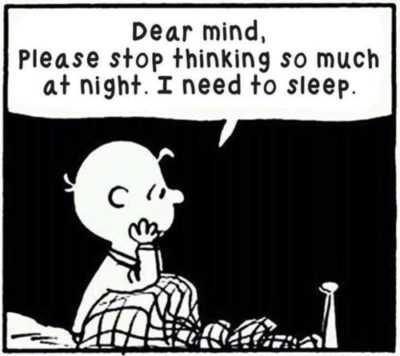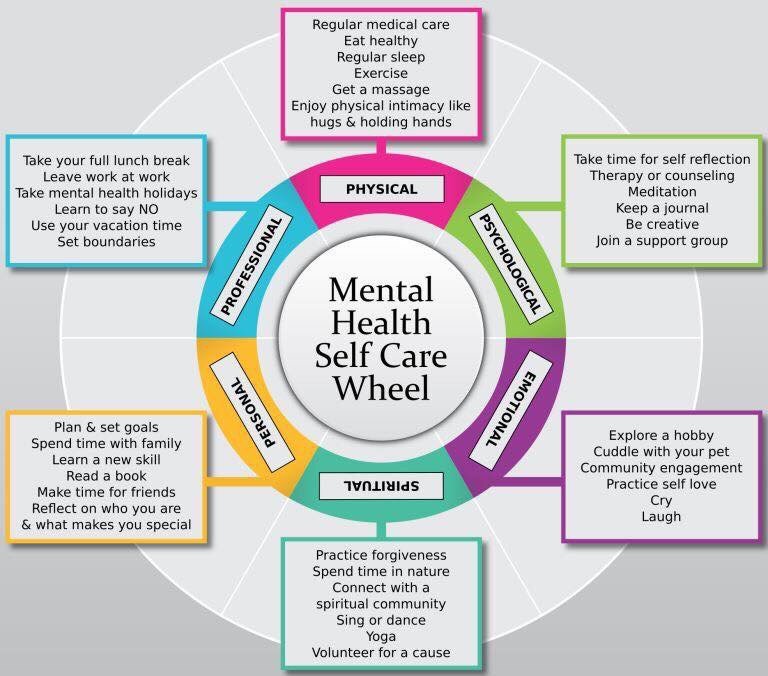Caregiver Burnout
February 22, 2019
By: Bridgeway Academy’s Psychology Team (Lindsay Fletcher, Ph.D., NCSP, Psychologist, Julie Henzel, PsyD, Psychologist, and Nicole Benson, Ph.D., NCSP, Postdoctoral Psychology Fellow)
Being a caregiver is a meaningful and rewarding role, but it’s important for caregivers to pay attention to their own health and well being, too. Caring for a child with autism can be physically exhausting and emotionally draining in addition to the significant amount of stress parenting responsibilities create on their own. On top of that, trying to balance your time and energy with the needs of your other children, the demands of your job, the needs of your marriage, and/or your own personal needs are by no means easy tasks. Not surprisingly, it takes time, effort, and energy to find and maintain a good balance of it all. But as many of us know, this can be difficult to achieve.

So what’s actually going on inside of us when life kicks it into high gear and we find ourselves experiencing high amounts of stress? When our bodies experience stress, our brains produce cortisol, which is known as the “stress hormone.” A just right amount of cortisol can help us engage our “fight or flight” mode, which prepares one to take on challenges. However, chronic stress and persistent flooding of this hormone into our systems can have negative effects on our overall well-being, including physical (e.g., fatigue) and cognitive (e.g., inattentiveness) symptoms.
While one would think that people who frequently experience spikes in cortisol levels would produce high levels of this hormone when tested, it turns out that the opposite is often (but not always) true. Gunnar and Vazquez (2001) found that chronic stress can actually be associated with lower levels of cortisol in some people. In lay terms, this means that individuals can become desensitized to stress just as a combat soldier might. This pattern has also been well researched in individuals with post-traumatic stress disorder (PTSD), Holocaust survivors, and parents of children with cancer.
Individuals can become desensitized to stress just as a combat soldier might.
If you are a parent of, or a caregiver for, an individual with a disability, it may come as little surprise to you that Seltzer et. al (2010) found these exact same desensitization-to-stress patterns when their research participants were mothers of adolescents/adults with ASD. While there are arguably some benefits to maintaining lower levels of the stress hormone (e.g., not going into panic mode when your child screams in the middle of Target), there are also some undesirable consequences, such as being easily irritated and getting too much or too little sleep. When experiencing high levels of the stress hormone in one’s body, a whole host of physical and emotional symptoms are possible, including but not limited to:

In cases where this applies, desensitization to stress is one reason why caregiver burnout usually is not recognized by the caregivers themselves. Therefore, it is paramount to look out for the signs of caregiver stress/burnout and seek help if needed (see below). D
Desensitization to stress is one reason why caregiver burnout usually is not recognized by the caregivers themselves.
SIGNS OF CAREGIVER STRESS/BURNOUT:
- Feeling tired often
- Irritability
- Feeling numb or developing an uncaring, negative attitude
- Feeling overwhelmed or constantly worried
- Social withdrawal
- Loss of interest in favorite activities
- Frequent illness, headaches, chronic pain, or other physical symptoms
- Difficulty concentrating
- Changes in sleep patterns
- Changes in appetite and/or weight
- Feelings of hopelessness and/or helplessness
- Reliving upsetting memories
- Inappropriate use of alcohol and/or medication
Remember, if you don’t take care of yourself, you won’t be able to care for anyone else.
The emotional and physical demands involved with caregiving can strain even the most resilient person. That’s why it is so important to take advantage of the many resources and tools available to help you provide care for your loved one. Remember, if you don’t take care of yourself, you won’t be able to care for anyone else.
TO HELP MANAGE STRESS/BURNOUT:
1. Accept that there are limits to what you can do. It’s a huge step forward when one is able to challenge the idea that he/she is the only one who can help his/her loved one, and that there is no limit to what you can do. Something has to give for Supermoms/dads who try to do it all, and that “something” usually ends up being self-care. When one doesn’t get enough sleep, stay hydrated (with water in addition to your Starbucks), get exercise, and have some alone time to recharge their battery, it’s only a matter of time before caregiver burnout takes hold.

2. Ask for and accept help. Be prepared with a list of ways that others can help you, and let the helper choose what he or she would like to do. For instance, a friend or family member may offer to watch your child so you can complete the grocery shopping or run errands alone, or they may be open to picking up your groceries or cooking for you.
- Did you know? Many
grocery stores offer customers the ability to order their groceries
online/through an app and allow you to schedule when is most convenient for you
to pick them up! A few of these programs include Giant Eagle’s “Curbside Express”, Kroger’s “Clicklist”, and Wal-Mart’s
“Grocery Pickup”. The first few pick ups
are usually free, then a small fee applies after that.
- Even better, services such as the app “Instacart” or Amazon Prime Now allow you to place your grocery order online and then they deliver it to your doorstep at the time of your choice if you’re not even able to leave the house. Minimum orders of $10 may be required; a small fee applies and then a driver tip is optional.
3. Work smarter, not harder. Your to-do list may seem overwhelming and impossible to complete at first glance, but it might seem a lot more manageable once you prioritize the items on your list in terms of what needs to be done by a certain date (within the next week, 1 month, 3-6 months, 1 year, etc.). Once you have a shorter list of more immediately tasks, consider breaking each one down into smaller steps that you can do one at a time.
4. Give yourself some credit. No one is “perfect,” and when we’re stressed out, our brains tend to over-focus on our problems or perceived “failures” in addition to overlooking the things are going well for us. At the end of the day, write down or speak aloud all of the things that have gone well. This part is key: also give yourself credit for the challenging situations that you handled, even if things didn’t turn out “perfectly.” A little self-love can go a long way.
5. Go to the doctor. Get a complete physical to rule out illnesses that may contribute to burnout. For example, your chronic headaches may actually be a result of needing a new glasses prescription instead of solely resulting from stress/burnout. Understanding your body is a key tool to helping you be on top of your game.
6. Connect with others. When you have a child whose needs are challenging, feeling cut off from support and empathy can contribute to your stress. Make an effort to stay well-connected with family and friends who are able to offer nonjudgmental emotional support. Set aside time each week for connecting, whether it’s taking a walk with a friend or joining a support group.

7. Set personal boundaries. Setting boundaries with your time (a.k.a., saying “no” every once in a while) can be incredibly beneficial. For example, hosting the large holiday family dinner a couple times a year or being the carpool driver (Every. Single. Week.) just because no one else volunteered to do so can be rewarding yet extremely draining. Learning to set boundaries and occasionally saying “no” when others are fully capable of stepping up to say “yes” can help you free up time in your life so you can practice self-care.

8. Watch out for parental guilt: It’s easy to fall into the “should” trap as a parent, which can increase guilt and fuel unrealistic expectations. For example, you may have thoughts such as I “should be doing more for my child,” or “if only I were more organized, I could accomplish XYZ.” There is also a tendency to beat yourself up for not integrating self-care practices or perceiving that you are failing at achieving work-life balance. Work on catching these unrealistic and unhelpful thoughts and realize that life naturally ebbs and flows. You are probably doing better than you think! When integrating self-care practices, start small. For example, setting a goal to work out 3 times per week may sound good, but if it’s unrealistic for your life, then it can actually increase stress, so consider setting the goal at 1-2 times per week. Alternatively, little things, such as drinking more water, setting out your clothes each night for the following day, packing all lunches the night before, and making it a point to get up, stretch, and walk down the hallway at work every hour can go a long way.

Photo Credit: https://legacyplacessociety.com
References:
If you’d like to consult with a Bridgeway Academy psychologist about more caregiver stress/burnout topics or self-care strategies, please contact us at psych@bridgewayohio.org. Also, please consider checking with your insurance provider to see if counseling sessions could be covered so you can talk freely with a trained professional.
Garey, J. Why self-care is essential to parenting: Caring for children with intense needs can take an emotional (and physical) toll on parents. Retrieved from: https://childmind.org/article/fighting-caregiver-burnout-special-needs-kids/
Gunnar, M. T., & Vazquez, D. M. (2001). Low cortisol and a flattening of the expected daytime rhythm: Potential indices of risk in human development. Development and Psychopathology, 13, 515–538.
Mayo Clinic Staff. (2018). Caregiver stress: Tips for taking care of yourself. Retrieved from: https://www.mayoclinic.org/healthy-lifestyle/stress-management/in-depth/caregiver-stress/art-20044784
Seltzer, M.M., Greenberg, J.S., Hong, J., Smith, L.E., Almeida, D.M., Coe, C., and Stawski, R.S. (2010). Maternal cortisol levels and behavior problems in adolescents and adults with ASD. Journal of Autism and Developmental Disorders. 40(4), 457-469.
Taking care of yourself: A parent’s guide to autism. (August, 2018). Retrieved from: https://www.autismspeaks.org/tool-kit-excerpt/taking-care-yourself
Wang, K. (2012). 8 Essential tips for preventing caregiver burnout. Retrieved from: https://www.friendshipcircle.org/blog/2012/10/04/8-essential-tips-for-preventing-caregiver-burnout/
« Previous
The Many Faces of Stress